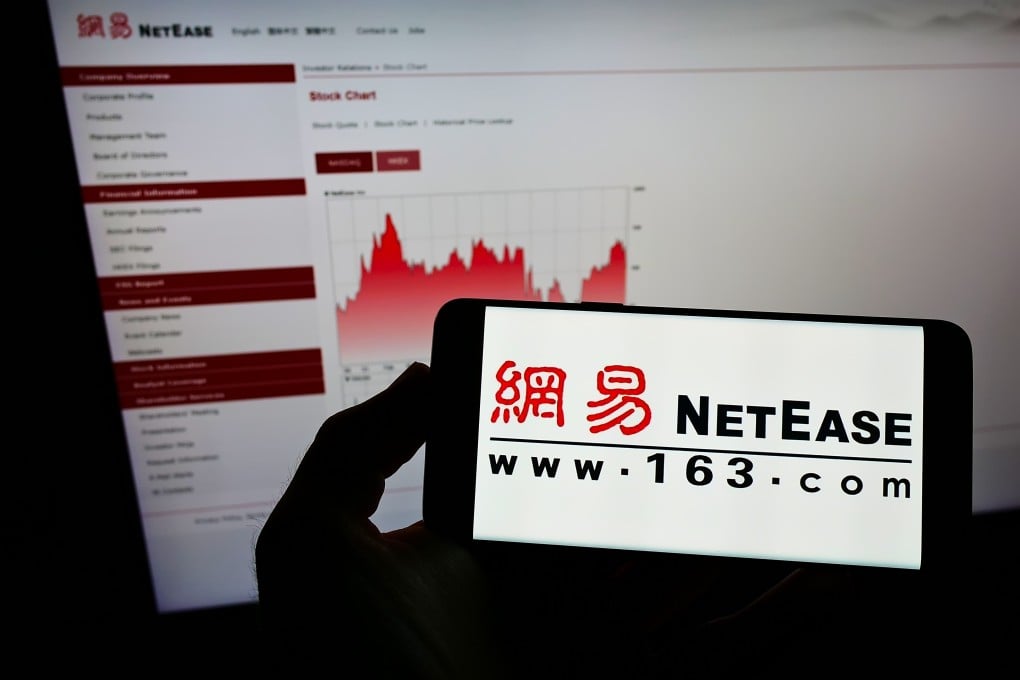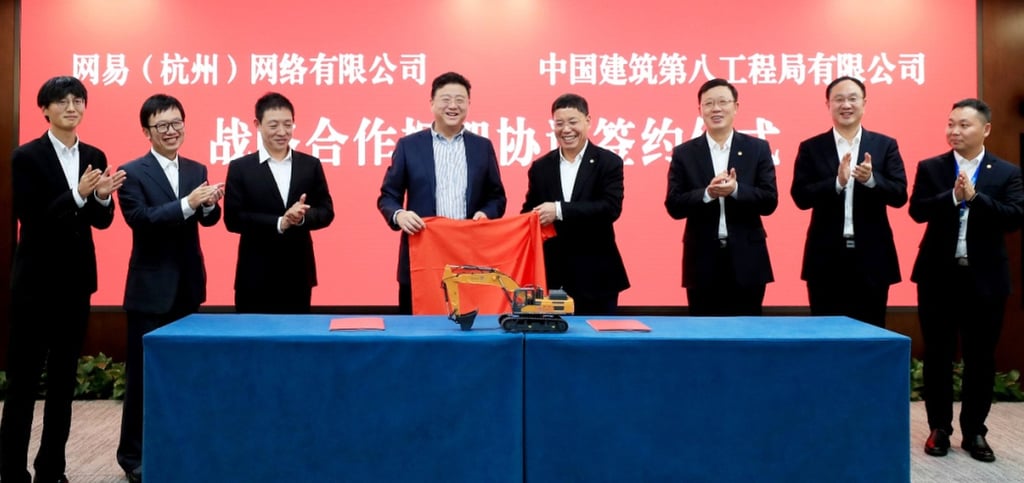Advertisement
NetEase doubles down on video gaming tech adoption in major deal to develop smart robots for China’s construction industry
- Fuxi Lab, the AI arm of NetEase Games, will jointly develop smart robots with a unit of China State Construction Engineering Corp
- NetEase founder William Ding expects the joint initiative to provide a new example of digital transformation in China’s construction industry
Reading Time:2 minutes
Why you can trust SCMP

Ann Caoin Shanghai
Chinese internet and video gaming giant NetEase is collaborating with a unit of China State Construction Engineering Corp to jointly develop and promote the wider use of smart robots in the construction industry.
Fuxi Lab, the artificial intelligence (AI) arm of NetEase Games, signed an agreement with the China Construction Eighth Engineering Division (CCEED), a unit of the world’s largest construction company by revenue, to pursue joint research and development of smart robots as well as commercialise these machines, according to a post published on Thursday by Fuxi Lab on its official WeChat account.
NetEase will use the technologies it has accumulated in the video gaming industry, such as AI and human-computer interaction design capabilities, to “make working [in construction] like playing games”, Fuxi Lab’s post said. “As workers’ efficiency improves, their salaries are also expected to increase.”
Advertisement
The intelligent machines under the two firms’ joint initiative include robots for excavation, loading and paving activities, which are expected to be launched in the next three years.

William Ding Lei, founder and chief executive of NetEase, said at the signing ceremony between Fuxi Lab and state-owned CCEED that their efforts would provide “a new example of digital transformation in China’s infrastructure [development]”.
Advertisement
“Let the scenario of ‘one person simultaneously controlling hundreds of machines working non-stop for 24 hours’ become a reality,” Ding was quoted as saying in the Fuxi Lab post.
Advertisement
Select Voice
Select Speed
1.00x